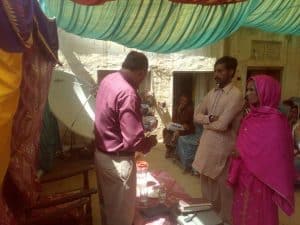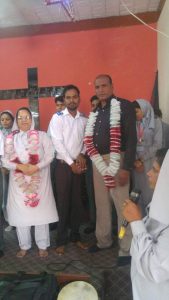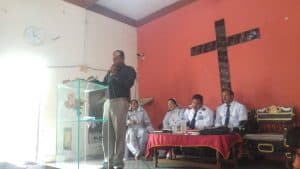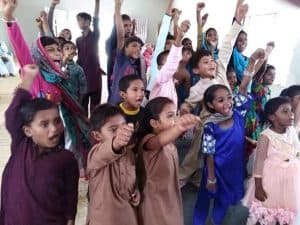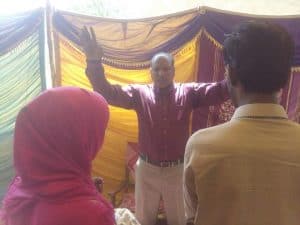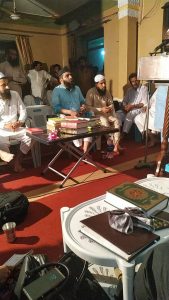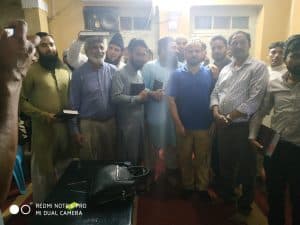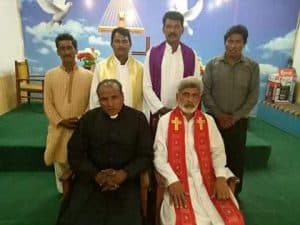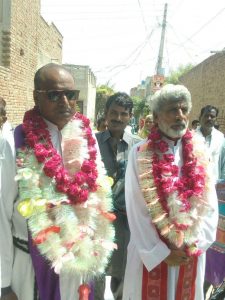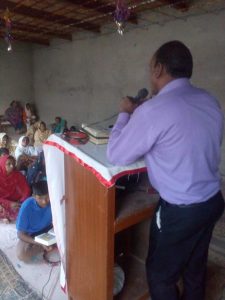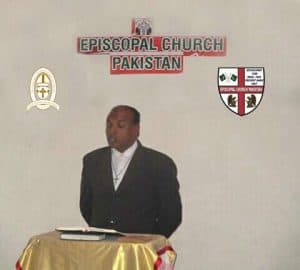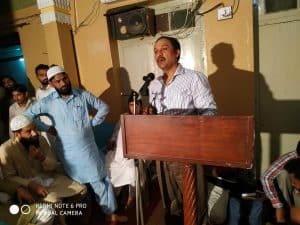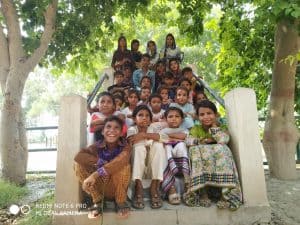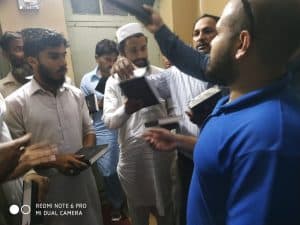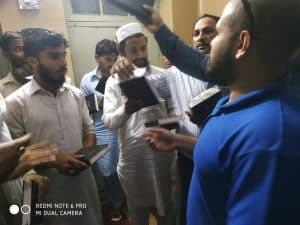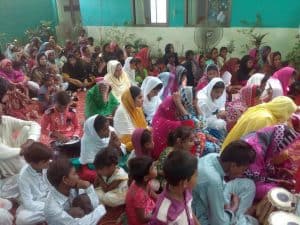Bishop Hizkiel has been recognized as a leader by his peers for many years, and has often stepped in to difficult circumstances with a voice of optimism, reason and hope. Today, as he leads the CEEC.CHURCH Diocese that has been known locally since 1947 as the Episcopal Church Pakistan, he faces many challenges.
“We face all of the difficulties one might anticipate of a small group of Christians living in a country ruled by a different culture,” says Bishop Hizkiel, “but we face each day with a determination to let the love of Isa al-Masih shine through our words and our actions. We are against no one, we are simply a people called to love those around us with a love that comes from Him. His love truly changes lives. As such, it rules our lives, our actions and our relationships with everyone we meet.”
The Islamic Republic of Pakistan is the only country to have been created in the name of Islam. The CEEC.CHURCH has Christian communities growing in close to a dozen cities, including the capital city of Islamabad and also Karachi, Pakistan’s largest city.
The Bishop says there are three reasons they continue to grow in this nation where persecution is a fact of life for every believer.
Reason #1 -The Strategy Of Cooperation
Partnership in their day-to-day living for Christ is a key component for the success — indeed the survival — of believers in Pakistan. “We are deliberate in the way we choose to relate to our brothers and sisters in Christ,” Bishop Hizkiel observed, “we always support one another in any way we are able.”
The support of which the Bishop speaks, the deliberate partnership, is seen in the way the CEEC.CHURCH congregations lift up the work of the Gospel – regardless of which of the other Christian communities is playing host. For example, the Bishop recently led a service in one of the local Salvation Army congregations, as can be seen in the photo at the top of this page. For the church in Pakistan, partnership is the life blood of the work. It is core to the ministry of the CEEC.CHURCH, and extends both into Pakistan and out of it.
It is a fact of life here that the lowest paying and dirtiest occupations are always reserved for Christians. This severely limits their financial resources, and even impacts the ability of the leaders to communicate among themselves.
External partnerships help fund critical ministry and events. One CEEC.CHURCH congregation, Redeemer Church in Ponte Vedra Beach FL, recently provided the funds that allowed Bishop Hizkiel to travel from Punjab to the Sahiwal District so he could ordain the CEEC.CHURCH’s newest Pakistani priest and plant our newest church.
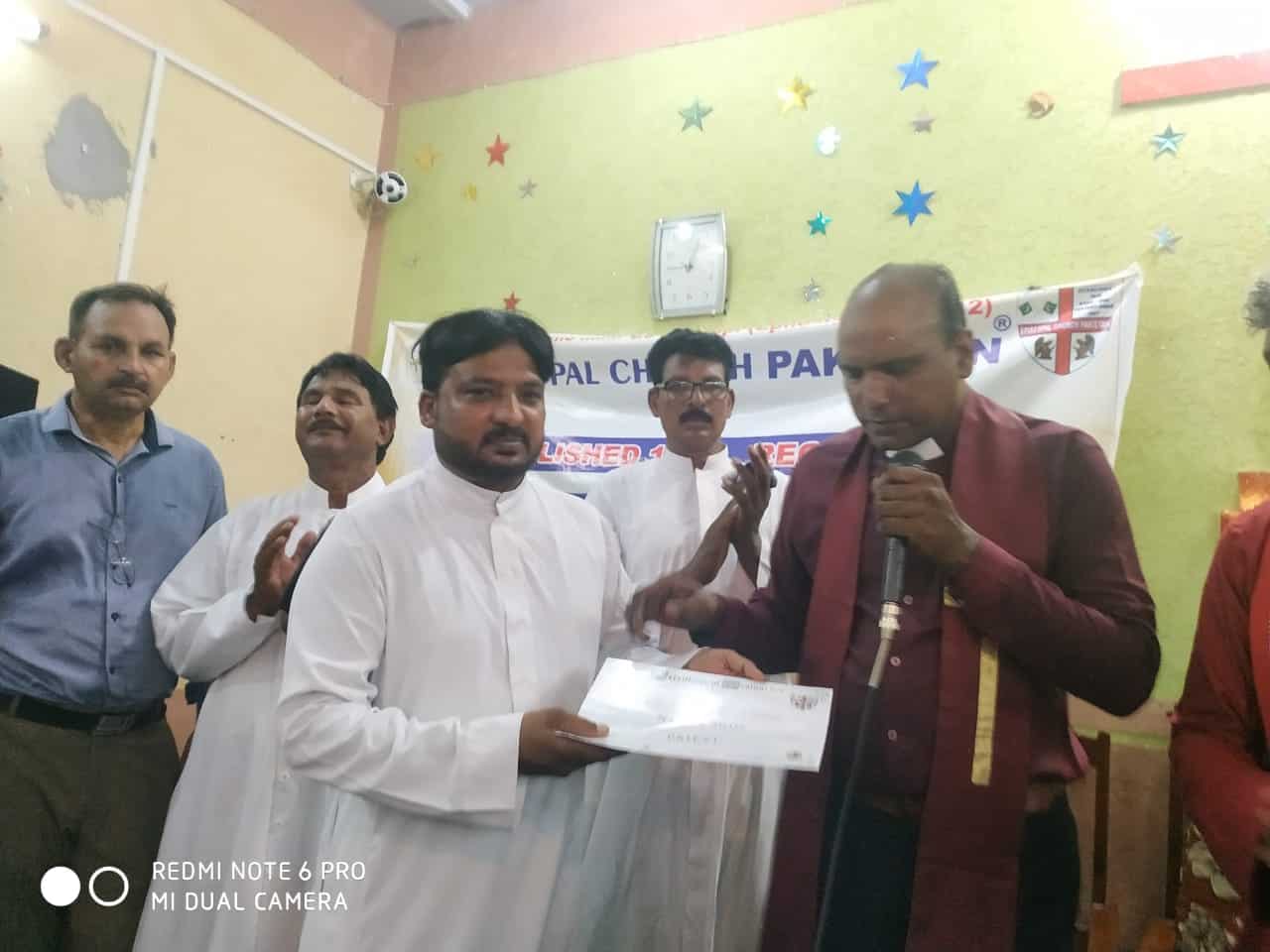
Coordinating the publication of these needs and facilitating the distribution of the gifts is a major focus of the CEEC.CHURCH’s International Commission on World Mission. “Of course, there is no way that we can meet every need that is presented,” observed Abp Robert Gosselin, who serves on the ICWM, “but many of our CEEC.CHURCH congregations and ministries have a deliberate focus on missions, and their generosity makes a huge impact.”
In Pakistan, gifts are currently focused on making ministry possible; never for salaries or regular expenses, but always for smaller congregations and critical ministry functions.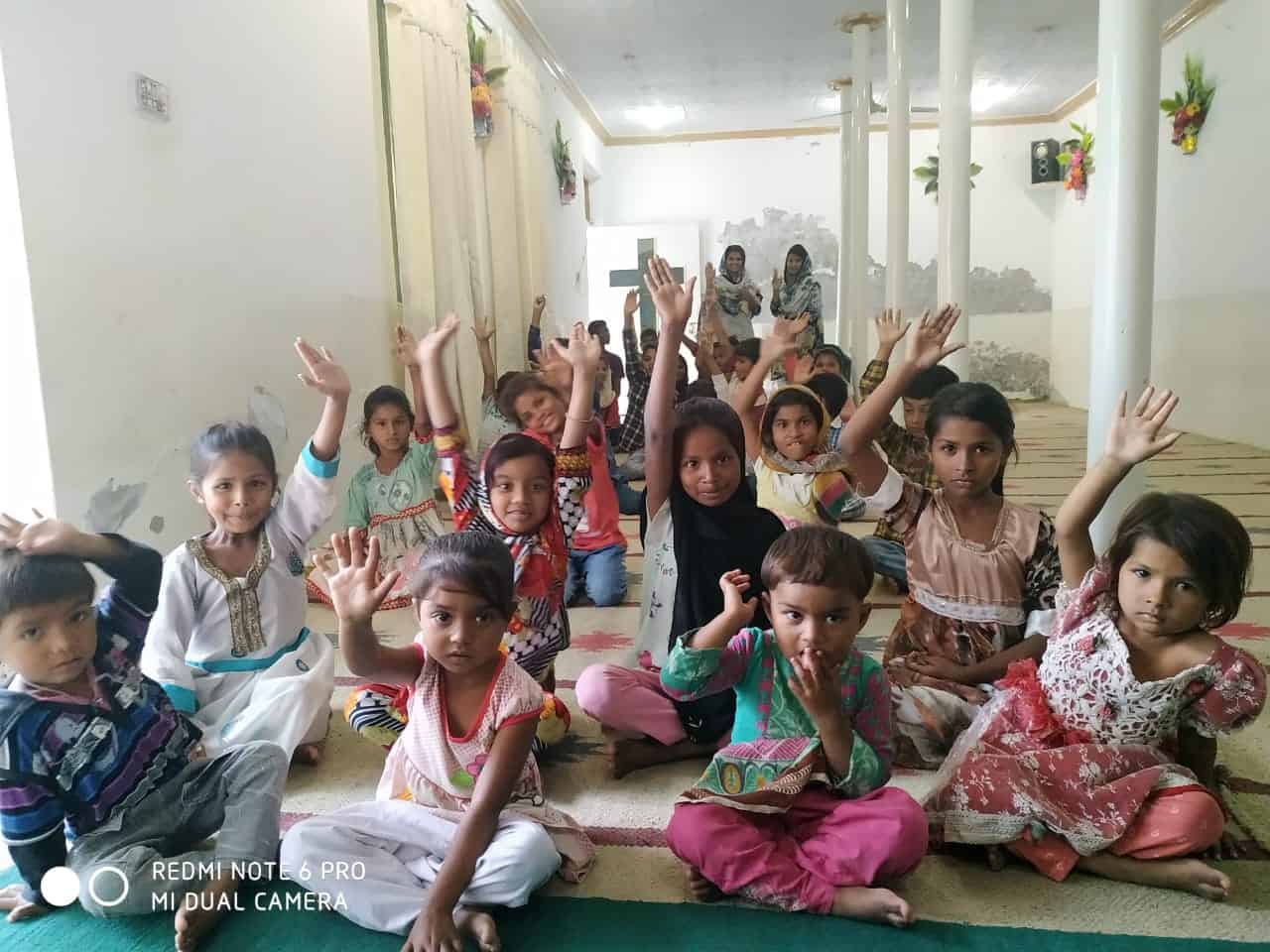
Right now, for example, we have a Pakistani church that cannot meet in its building due to a hole in the roof, and the local congregation does not have the $510 needed to repair it. Once it is repaired, the government will allow them to use their church building, but not until.
There are two churches waiting to be planted in new locations, one in the Zubair Colony of Faisalbad and a second in the capital if Islamabad. While the new congregations will able to handle the small costs of operations once they have been established, the start-up costs for each new church plant run from $750 to $800. This amount is out of reach to them, and so they wait and pray that God will send a partner to help.
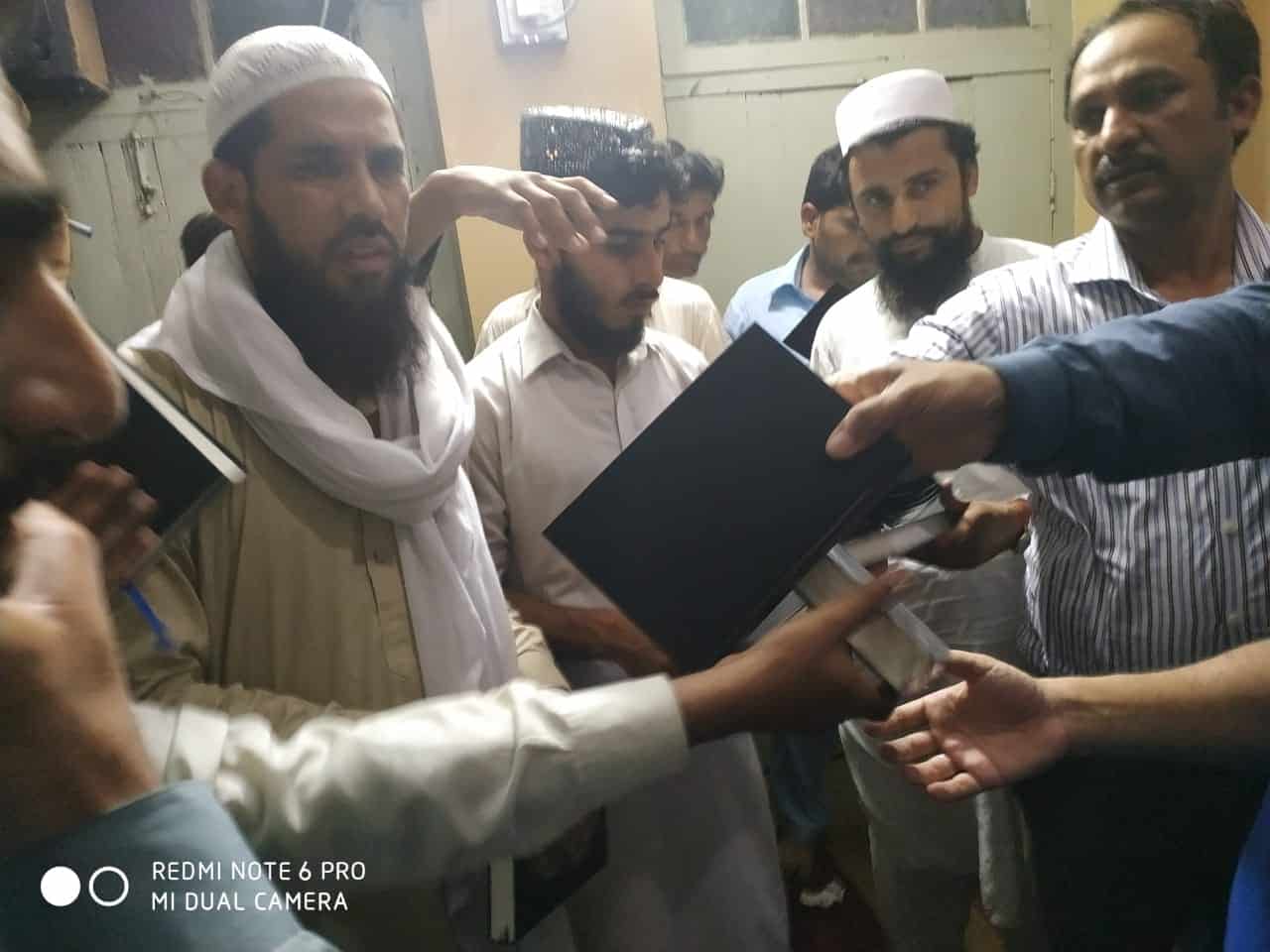
Distributing Bibles to those who have none allows for discipleship and spiritual growth. Using other donated tools to equip local believers to do all that the Lord calls them to do has been very effective for our churches in Pakistan.
“Partnerships, inside and outside of Pakistan, keep us effective,” Bishop Hizkiel says. “They keep us humble, and allow the Lord to show us where He wants us to focus our efforts.”
Reason #2 – Respecting Law – Respecting Neighbors
Traditional churches with historic roots do enjoy some relative freedom to worship in Pakistan, in spite of difficulties that are commonly understood. This was part of the reason that the Episcopal Pakistan Church Mission, which was founded in 1935, decided to adopt its current name – the Episcopal Church of Pakistan – in 1947.
When the Province of Reconciliation first received them a number of years ago, the details of the work (in fact, even the existence of the partnership) were carefully protected. But currently the CEEC.CHURCH leadership in Pakistan is requesting that we share the scope of their ministry, so that everyone will be aware of their work, their challenges and their needs.
“It will be better for us,” Bishop Hizkiel has said, “the people know who we are and where we are serving. It can help those who are involved in the work of the Gospel.”
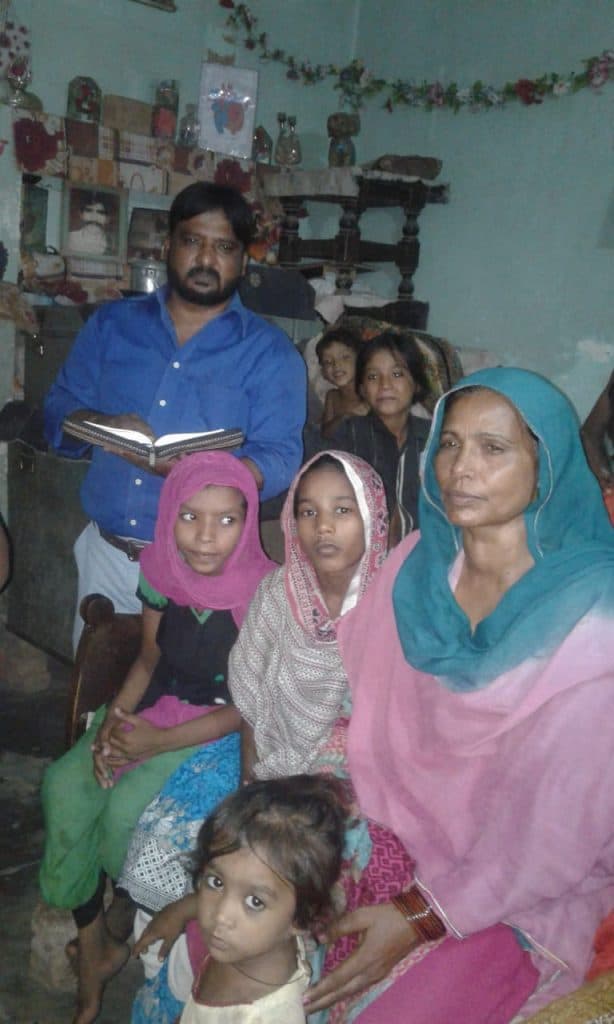
But even the traditional churches are carefully observed by the government in Pakistan. Believers live their lives of faith with deliberate care, respecting both the laws of the Islamic Republic of Pakistan and the working to maintain good relations with their neighbors. This is especially important when we establish new faith communities, and locate a place for them to gather to worship. This photo was taken as one of our new communities was recently planted in the Sahiwal District. The CEEC.CHURCH community in Sahiwal already includes several men, women, boys and girls; and is growing well.
Though the official state religion is Sunni Islam, the Pakistani constitution has provisions which guarantee all people freedom of religion under the law. However, persecution of non-Islamic faiths is a fact of life in Pakistan, and one that requires constant vigilance. Discrimination against non-Sunni Muslims is open, and the freedoms and protections promised under the laws of Pakistan are not always delivered fairly or fully. All non-Islamic individuals must be very careful with their speech, as Pakistan has laws forbidding blasphemy which are very severe and can carry the penalty of death. As such, each of the five CEEC.CHURCH Bishops carefully instructs the clergy to speak for Isa al-Masih and His teachings of love, grace, forgiveness and truth.
As they build relationships with their neighbors, the core foundation of love is demonstrated by a deep respect for all that is important to the neighbor. This respect is not only for their current faith, but also for their family, their employment and their position in the community. It is in the context of love and respect that are best able to show how a vibrant faith in Isa Al-Masih can impact a person directly, and give strength and hope in the difficulties of life.
Reason #3 – Serving Well In Even The Most Difficult Places
When one lives in a land where discrimination is widespread, some would even say institutional, the opportunities to demonstrate ongoing forgiveness abound. Recently, media outlets outside of Pakistan have carried articles discussing the escalating issues facing Pakistani Christians, including attacks on homes and places of worship.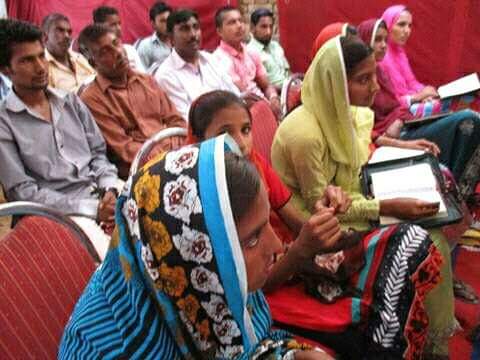
In Pakistan, most Christians are counted among the poorest in the nation due to the economic restraints of of this issue. Even believers who have been able to work their way into a more middle class position face constant exposure to accusations; and everyone is well aware of the vulnerability and risks of living for Isa Al-Masih.
But serving well, even in these circumstances, allows followers of Isa to show how faith can overcome fear. Bishop Hizkiel has said “I know of many instances where a believer in Isa who is serving with joy, even in a forced labor situation, has opened the door for a wonderful conversation about faith.”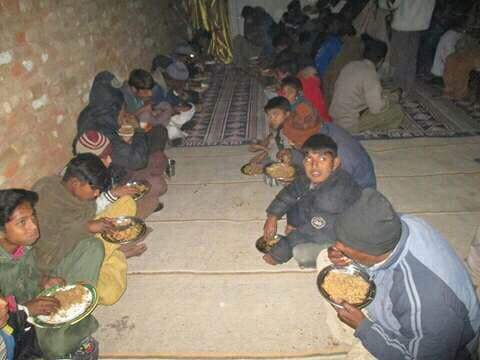
Youth growing up in the Christian communities of Pakistan find this lesson particularly difficult. Many of them question whether and how they can overcome these issues. Helping their young people to keep a proper perspective is one of the primary focuses of both prayer and training efforts of the Church in Pakistan.
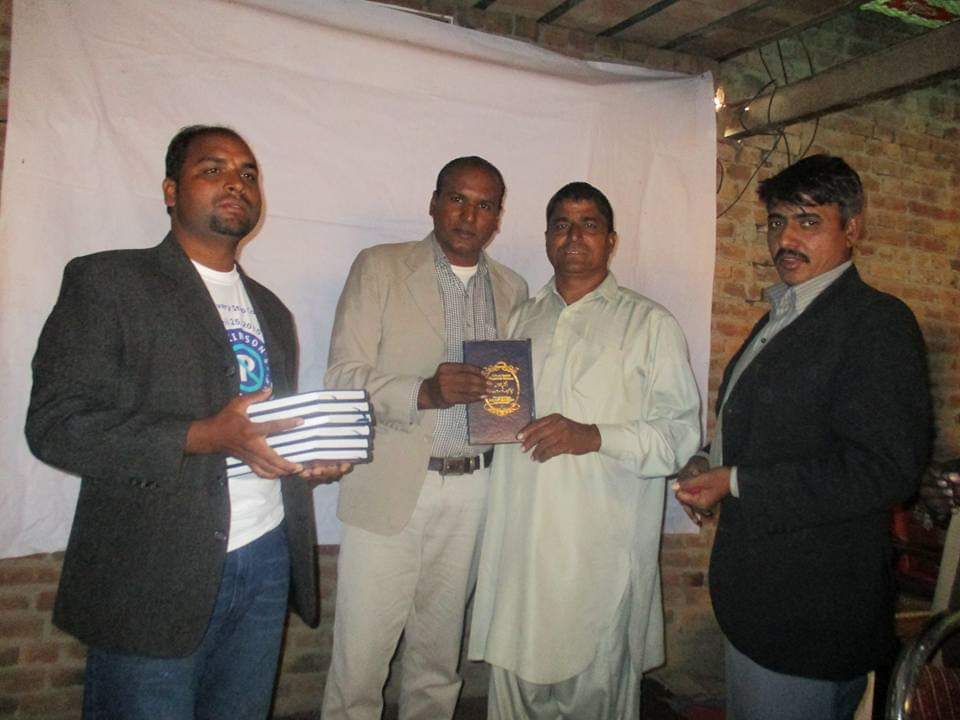
The words of Paul in 1 Cor 4 are lived out by our brothers and sisters in Pakistan…
“To the present hour we are hungry and thirsty, we are poorly clothed and beaten and homeless, and we grow weary from the work of our own hands. When reviled, we bless; when persecuted, we endure; when slandered, we speak kindly. We have become like the rubbish of the world, the dregs of all things, to this very day.”
Let’s be deliberate about lifting them in prayer, and about being real partners in the work of the Gospel in this difficult nation.
